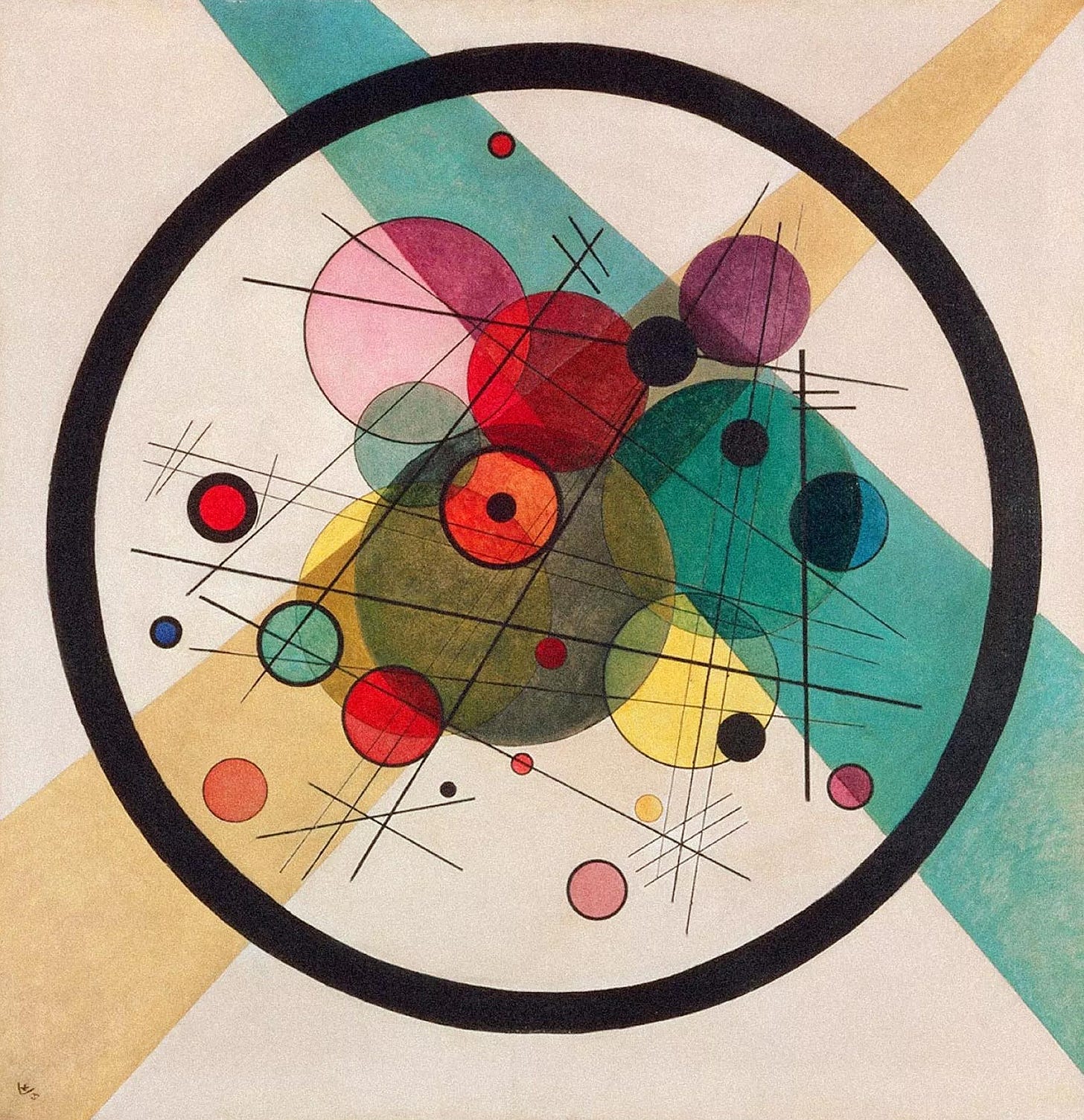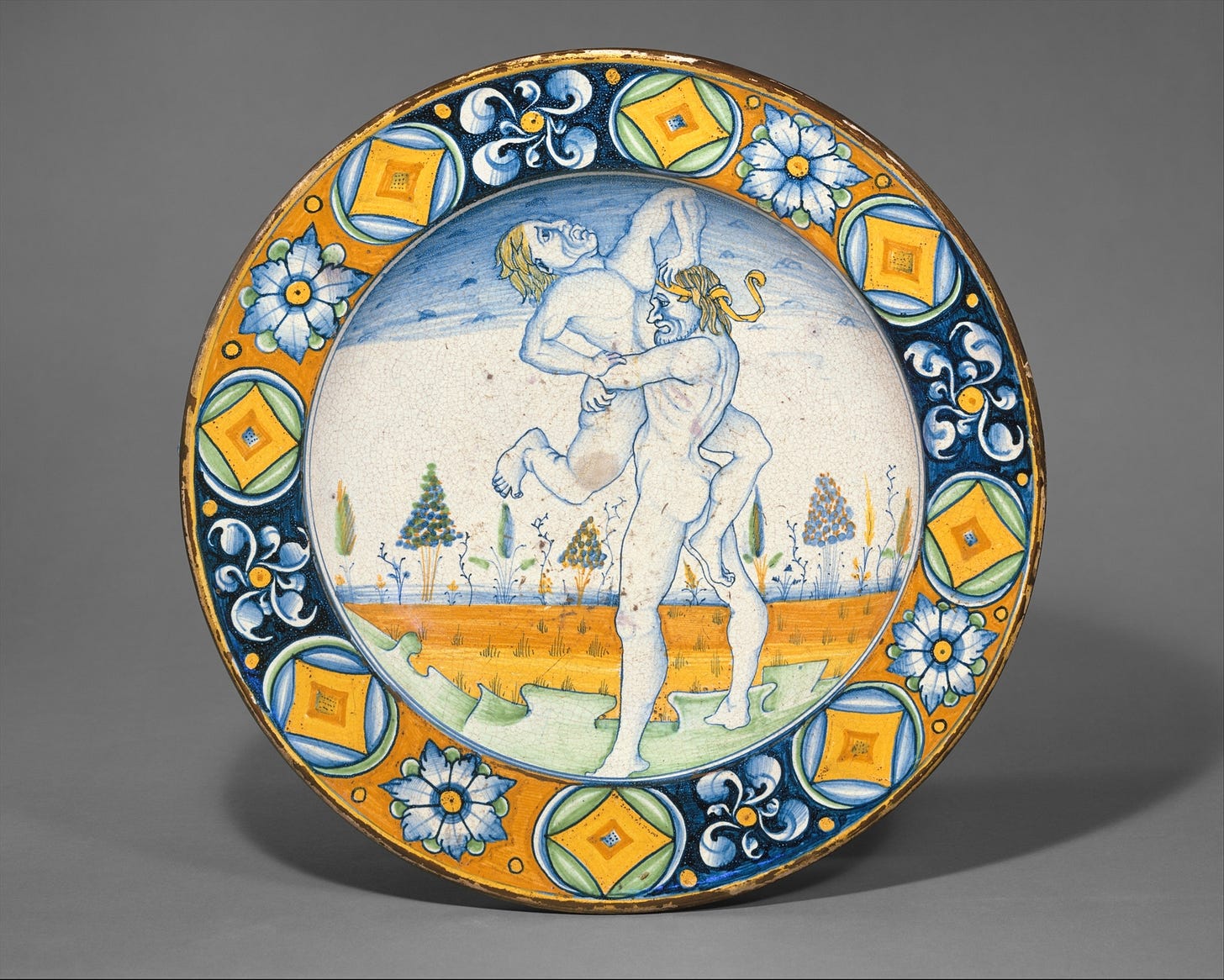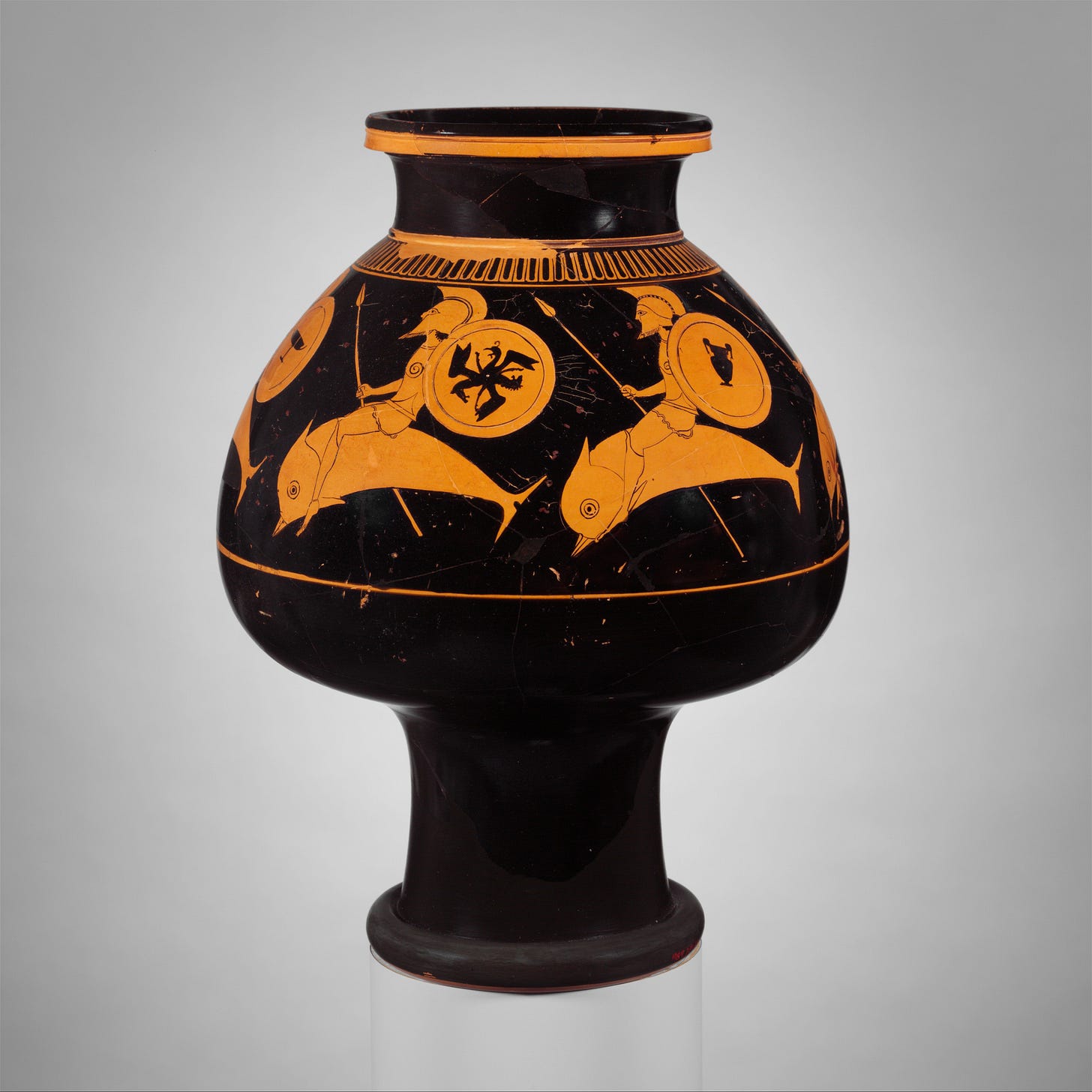"We are trying to define the whole conduct of life" | Plato's Republic, Book 1
Frustration; foreshadowing; forays into the definition of justice
Welcome to the first post in our read-along of Plato’s Republic. Here’s the schedule:
March 31: Book I
April 7: Book II
April 14: Book III
April 21: Reading Week
April 28: Book IV
May 5: Book V
May 8: Members-Only Zoom Call, 3PM Eastern
May 12: Book VI
May 18: Members-Only Zoom Call, 8PM Eastern
May 19: Book VII
May 26: Reading Week
June 2: Book VIII
June 9: Book IX
June 16: Book X
June 22: Members-Only Zoom Call, 8PM Eastern
All main posts are free, but Zoom calls and supplementary posts are available only to paid subscribers. If you’d like to join those calls or read everything that I write, please consider supporting my work.
I do not always enjoy reading Plato. I suppose this should be a point of shame – I’m a philosopher, after all, and Plato is our spiritual progenitor – but I suspect that I do not enjoy reading him for reasons that many of you will not enjoy reading him (or will initially find it frustrating). I am a product of academic philosophy, trained particularly in the analytic style, and I am primarily used to the essay as our mode of communication. Plato’s dialogues are frustrating not in content but in form.
We’ll discuss the content momentarily, but I wanted to mention this. If you found that Book 1 took you much longer than 30 pages ought to take you, or you found it difficult to keep reading, know that this is not unusual. The best advice I can give you is to persevere.
One more note about Plato: traditionally, Plato’s works are published with line numbers in the margins. This the Stephanus pagination. I’ll primarily reference the Stephanus numbers rather than page numbers, since we are reading from several different translations.
The scene begins with Socrates and Glaucon celebrating a festival to a goddess, Bendis. For Athenians, Bendis was identified with Artemis, though she had a distinct temple at Pireaus, the setting of the dialogue. Socrates and Glaucon make their way home when Polemarchus, son of Cephalus, stops them and invites them to Cephalus’ home. Many young people are there, and the festivities will continue through the night.
The dialogues are not only philosophical arguments transposed into a dramatic mode. They are dramas themselves, with literary devices. A small bit of foreshadowing is already found shortly before line 328: Polemarchus asks if Socrates believes he could persuade the crowd if they refused to listen. Socrates does not respond, but Glaucon does: ‘Of course not,’ he says. We must consider whether our audience desires to be persuaded. (Or as we read in the King James Bible: ‘He that hath ears to hear, let him hear.’) At least one of Socrates’ interlocutors in Book 1 does not want to be persuaded.
That would be Thrasymachus, but we will turn to him in a moment.
What is the subject matter of Book 1? Justice. Starting with a conversation with Cephalus, who is thinking deeply about what it means to live a good life in old age, Socrates begins to interrogate the matter of justice with a succession of dialogical partners. While others do occasionally join the conversation, it is primarily:
Cephalus, an old man.
Polemarchus, his son.
Thrasymachus, the antagonist of Book 1.
In these conversations, we get a variety of definitions of justice. I found at least seven:
Justice is truthfulness and returning anything that you have received from anyone else (331c, posed as a question to Cephalus).
Justice is doing good to your friends and harm to your enemies (332a, attributed to Simonides).
Justice is giving any individual what is appropriate for him (332c, refining Simonides’ poetic definition)
Justice is giving benefits to friends and harming your enemies (332d, a further variation).
Justice is what is good for the stronger (338c, Thrasymachus’ first definition).
Justice is what the stronger thinks is good for him (340b, Cleitophon’s variation).
Justice is what is in fact good for the stronger, and injustice is what is profitable and good for oneself (344c, Thrasymachus again).
Save for the first definition, which is posed as a question for Cephalus, Socrates offers no definition himself. As we see at the end of Book 1, Socrates admits that he has gotten ahead of himself in many of the discussions. While he uses facts about justice in his arguments with Thrasymachus – about the qualities of justice, its status as an art or skill, etc. – he never gets around to the heart of the issue, what justice is. That will have to be a further discussion — and it will be throughout the Republic. Book 1 is something of a preamble.
As Socrates puts it, what is at issue is defining the whole conduct of life. Unlike other arts mentioned – captaining a ship, earning a living, horsemanship, shoe-making, etc. – justice (if conceived of as a skill) would touch upon all aspects of our lives. Thus, when someone proposes a definition of justice, we should read them as proposing a comprehensive way of life. Viewed in this way, Thrasymachus’ proposals are particularly ominous. To use a cliché: Thrasymachus is proposing a view of justice in which ‘might makes right.’ The strong get to, and really ought to, do as they please.
But as I read him, Thrasymachus is deeply confused. On the one hand, he has a view in which justice is what is good for the stronger. On the other hand, he has a view in which one has strong prudential reasons for acting unjustly, as it is the wise and good thing to do. The strong ought to be unjust, as it will serve their interests — but isn’t that what justice is?
Throughout his arguments with Socrates, Thrasymachus grants many premises, some of which are so clearly inconsistent with his conclusions that I struggle to see why he does not challenge them. Perhaps it is because he does not have ears to hear — he isn’t really engaged in the dialogue. Perhaps it is because he does not understand how radical his position is. Thrasymachus’ view of justice necessitates an upheaval of all of contemporary morality, or so it would seem. It leads to an inverted moral picture. He has not grasped that yet.
In the comments, we can discuss particular arguments and themes: Thrasymachus’ insistence that rulers cannot err (insofar as they are rulers), the nature of skills, and the unity of justice, goodness, & wisdom would all make for good topics of discussion.
I look forward to hearing from you down below.






Thrasymachus is not at all consistent, but I think the most consistent way of fleshing out his position is what we might call the "cynical view".
In every society, there is a ruling class, and they make laws that they think are in their best interests. These laws are contrary to the interests of the other classes, because it's a zero-sum game. They call obedience to these laws "justice". This is the sense in which justice is the interests of the stronger.
Since these laws are not in the interest of the non-ruling classes, members of the non-ruling classes who obey these laws, in circumstances where they would not get caught disobeying them, are just suckers and losers. The smart thing to do is to obey the laws only when you think you'll get caught. This is the sense in which injustice is more advantageous than justice for the non-ruling class.
And when you look closely at the laws that the ruling class has made, and you look at their conduct, you'll find that the ruling class has exempted themselves from those laws, in practice if not in theory. If you're poor and steal a small amount of money, you are punished harshly, but if you're rich and powerful and steal a great sum of money, you get at most a slap on the wrist. But really the rich person is doing the same thing as the poor person, and if you wanted to be consistent you'd call it "injustice". This in sense in which injustice is more advantageous for the ruling class as well.
The key assumption of the cynical view is that the laws that are in the interest of the ruling class are contrary to the interests of the non-ruling classes. There is no common good that's in the interests of both the ruling and non-ruling classes. But Socrates correctly points out that even bands of thieves have to have rules to enable them to work together. So the rules set out by the leader of the thieves, which would be "justice" according to the cynical thesis, are also in the interest of the rest of the thieves.
So the question naturally arises, can we have a set of rules or laws that works for everyone in larger groups? What about at the largest societal groups that share the same laws? For us today the largest group would be the nation-state, but in ancient Greece the largest group would the city.
One point to make about Thrasymachus (and his inability to recognize his own contradictions) has to do with your point about the form of Plato's communication. Plato is working with characters in a dialectical context and takes seriously the states of their own souls and relationship to justice as he's exploring in the dialogue the nature of justice in the soul. So he's doing as much (or sometimes more) showing than he is telling or explaining. With Thrasymachus this means showing someone who is upsettingly ruled by his passions (like a wild beast) and so unable to recognize what are actually obvious (to the reader) moves to make for a rationale interlocutor.
Another point I made when I did a summary of Book I a little bit ago is that I think it's significant that Plato's Socrates takes someone like Thrasymachus so seriously. It's one of the achievements of the Republic as a whole to take the "immoralist" as really worth listening to and try to give a vision of the happy life consisting of virtue that doesn't beg the question against them.
https://substack.com/@patrickegc/p-149540501